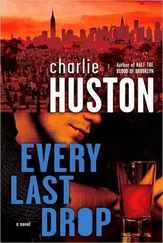“Pony and trap,” Gerry repeated. “I like that. You, my friend, are either prescient or a certifiable genius.”
“You may be right. I’ve just ordered a full-sized carriage that can carry more passengers. It could be the start of the River Valley Transportation Service.”
“Do you plan to issue stock?” Gerry asked hopefully. “And hire a driver, maybe? There’s enough room for a barn at the back of my place: I’m tired of mowing all that grass anyway.”
* * *
By late summer the World Wide Web had gone down. A bit at a time, but down. For Americans born and bred in the computer era, the larger world ceased to matter. Focus narrowed to Here.
As it became impossible to hide behind an enhanced image, individuals were forced to deal with each other in person. Millions discovered that electronic friends were actually strangers. Internet-addicted urban dwellers experienced something akin to rural isolation.
* * *
Frank Auerbach felt it was time for radio to stage a comeback. With his usual resourcefulness he located an ancient crystal set that had no suspect components and could be coaxed by a skillful ham operator into providing satisfactory short-wave reception. Soon he was making contact with similar enthusiasts who kept him supplied with news from beyond the Sycamore River Valley.
He made the announcement in The Sycamore Seed, adding, “Although it is a catastrophe with global ramifications, the failure of computers puts an end to cyber crime and the scourge of internet trolls. Sadly for retailers, the ability to influence consumers through social media has been lost, and the end of shopping online and internet banking is a massive inconvenience. We can be thankful that the US Postal Service has I-Roads for its mail carriers. Those one-person vehicles use special tires so the mail still goes through. Commerce in this great nation is badly wounded but not destroyed.”
* * *
Standing on the southeast corner of Elm Street, Jack Reece observed how different the town looked with so little traffic. Within his range of vision and prematurely bedecked for Halloween with black and orange crepe-paper chains were Goettinger’s department store, Deel’s hardware, The Magic Carpet, Ye Olde Booke Wurm, and Gold’s Court Florist.
So far the Corner Pharmacy (Open Till Ten), the Fletcher Building, the Sycamore and Staunton Mercantile Bank, Ralph Williams’s insurance agency and In-a-Minnit dry cleaners had been spared the spiderwebs and witches on broomsticks, but it was only a matter of time. What Sycamore River did last year it intended to do this year. If possible. A lot of ingenuity would be needed to find satisfactory replacements for inexpensive plastic decorations.
The town looked better without them, Jack decided. Nineteenth-century brick and stone buildings still standing in the twenty-first century, as solid and confident as ever, were mellow in the slanting sunlight of autumn.
Why did I used to hate Sycamore River? There must be some truth to the old adage about familiarity breeding contempt. At sixteen I was bored to death with the ordinariness of it. I felt trapped among thousands of other people who were as bored as I was. Where was the excitement? Where was the adventure? I couldn’t wait to escape.
Which shows how much a kid knows at sixteen.
He strolled down Elm and turned left at the drugstore, into Miller’s Lane. There were even fewer Halloween decorations there. Just ahead Arthur Hannisch was adjusting the striped awning above the display window of his jewelry store. When he noticed Jack he said, “Hi, buddy, long time no see. You been abroad again?”
“Not recently; you might say I’m in and out. Seems like I can’t stay away from the high life of Sycamore River for very long.”
“Yeah. Well. What you see is what you get.”
“How’re things with you, Art?”
Hannisch tugged at an earlobe. “Could be better, we’re struggling through every day and trying to keep things working. Betty Ann’s not teaching in the middle school anymore.”
“I thought your wife loved teaching.”
“She did; she does. But that high-tech equipment the board of education spent our tax dollars on has disintegrated and taken a lot of jobs with it. The schools will be going back to pencil and paper, but my generation’s finding it hard to cope. Facebook was the way Betty Ann viewed the world, y’know. She’s like the kids, nothing’s real if they don’t see it backlit on a screen. Without social media my wife doesn’t know what to do with herself.”
“Is she helping you out in the store?”
The other man gave a hollow laugh. “You must be joking. As it is I’ll have to let my only employee go. You remember Maude Foley? A widow with grown children? She can sell fleas to a dog, that woman, and she’s been with me for years. I’d like to keep her through Christmas, but we aren’t making enough to cover our overheads, never mind her salary. I’m worried about her, the suicide rate’s gone up since the Change started.”
“She wouldn’t do that.”
“How do we know what anyone might do these days? It’s like… it’s like a tide’s coming in, Jack. We can see it creeping toward us, getting higher and higher, but we’re on an island with no place else to go.”
“If that’s true, the whole world’s an island.”
“Yeah. Do you think the tide’ll go out again?”
Jack forced a grin. “Sure I do, Art. This is a crisis, but every crisis has an end.”
“If we live to see it. Sales of firearms are up, way up. They’re no good against the Change, you can’t force plastic to keep its shape by shooting at it, but you can let off steam by shooting at someone else if you’re frightened enough and angry enough.”
A generation was still alive that remembered the US Postal Service at its best. These men and women knew how to lick stamps and stick them on envelopes. They spelled “quick” with a qui rather than a kw and could construct declarative sentences. Without email they were not lost; handwritten letters began to flood into Washington, D.C. The great army of the Silver Foxes demanded the government reopen closed post offices, hire thousands of new postmen and get back to business.
In spite of all the obstacles created by the Change, America was determined to move forward.
* * *
Returning to his desk after a period of “convalescence,” Dwayne Nyeberger feared others might see his breakdown as a weakness. He became more of a martinet at the S&S than his father-in-law. He roamed the bank openly criticizing the employees, knowing they feared for their jobs because of the uncertainty of the times. He stood too close to female customers and insulted male customers to their faces. On the increasingly rare occasions when a beleaguered individual sought to apply for a loan, Dwayne accused them of being financially irresponsible.
If he had set out deliberately to ruin the Old Man’s business he could not have done a better job.
* * *
Shortly after lunch the president of the Sycamore and Staunton Mercantile Bank paid an unannounced visit to his daughter. She lived in a large white house in the symmetrical Federal style, set on a professionally landscaped lot in a desirable residential neighborhood. Patricia’s father had given the house to her as a wedding present, although he retained the deed. He also neglected to mention that the house was a bank foreclosure.
The wing the Nyebergers had added after Kirby was born looked like an ill-advised afterthought. So, Staunton thought, were the rest of the children.
No matter how many times he pushed the bell no one responded. In exasperation he took a brick from the border of the nearest flower bed and banged it repeatedly against the door.
Читать дальше









